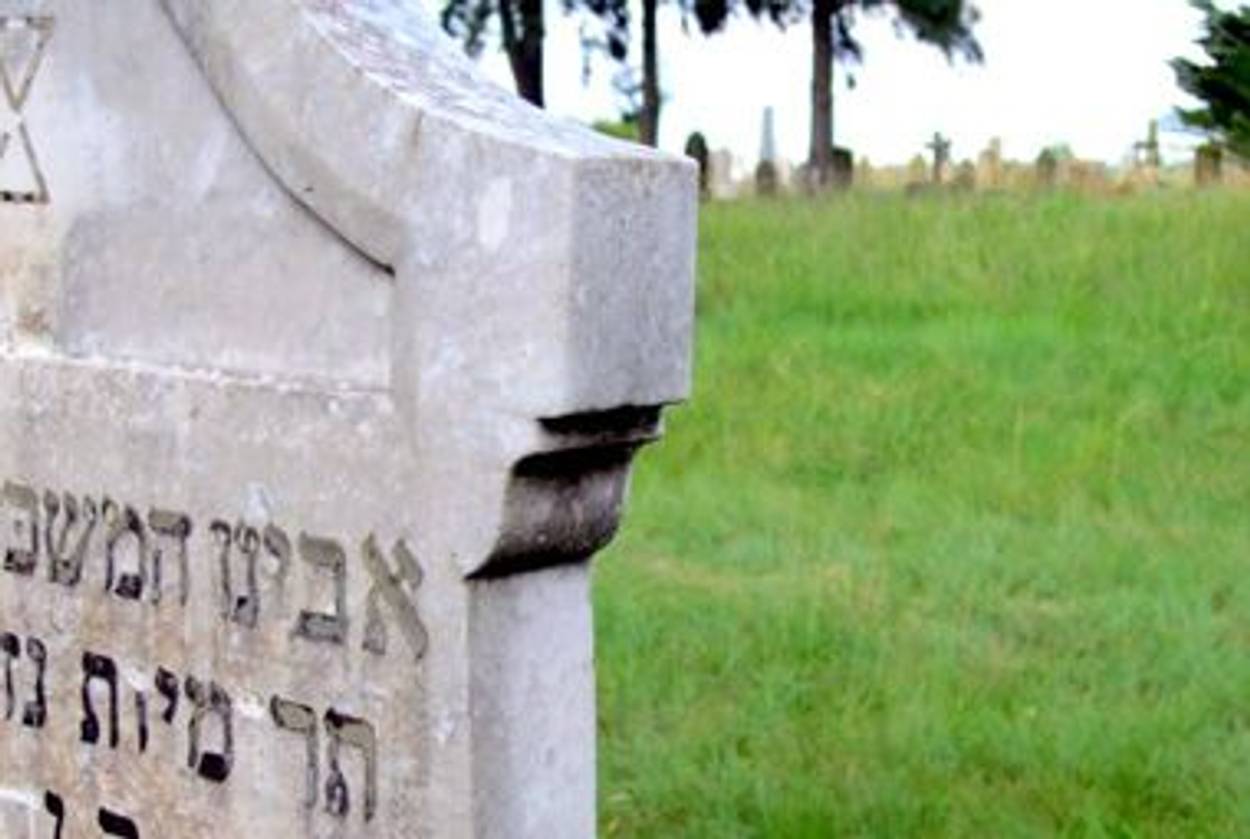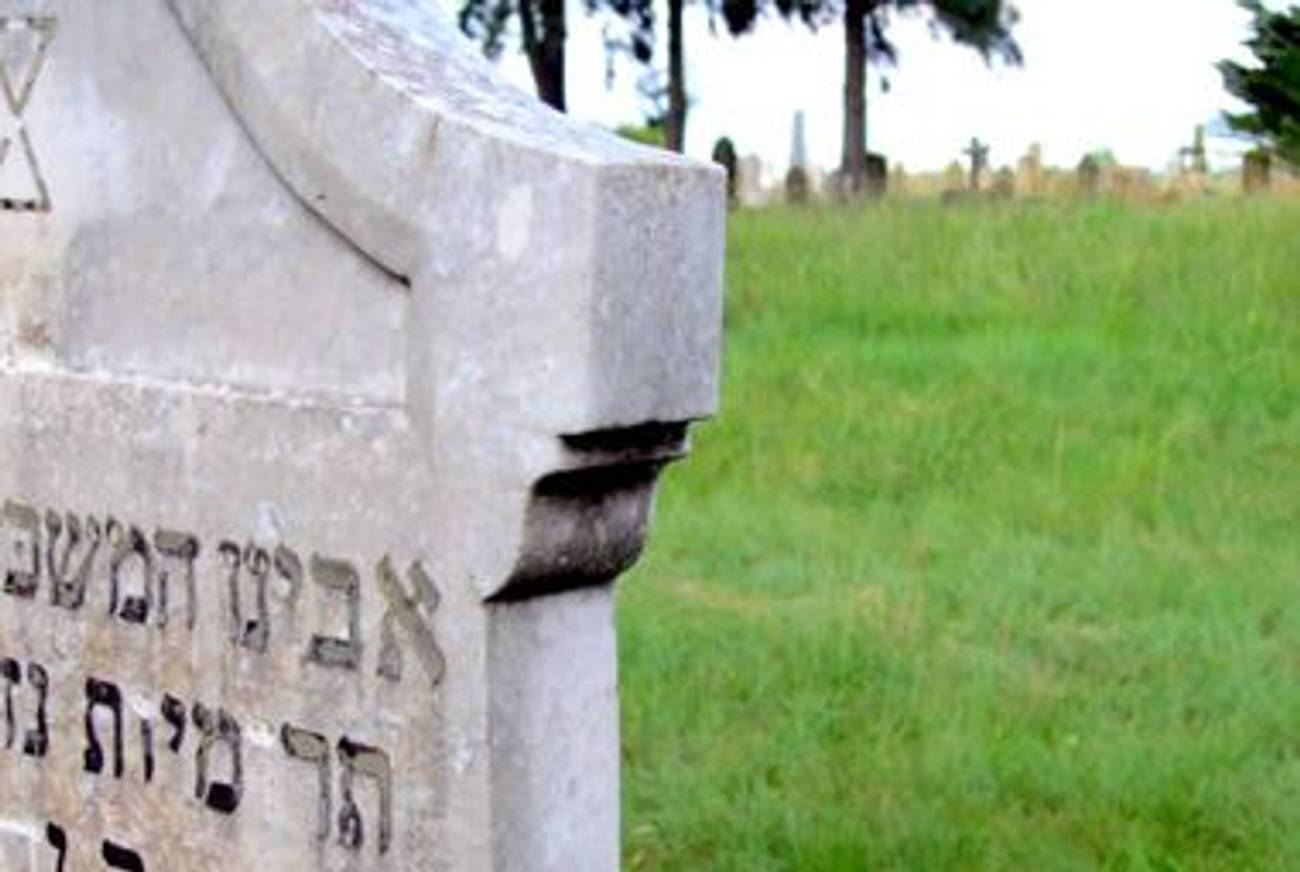Holiday in the Hinterland
Once home to Jewish immigrants, a South African city today hosts a very different sort of Jewish practice




A personal decision I made in early 2009 to get more serious about my Jewish practice happened to correspond with a professional decision to move to South Africa for work. Now, South Africa has a lot of Jews, but they’re almost all in Cape Town or Johannesburg, and I would be traveling in the hinterlands, through remote Afrikaner cow-towns and black settlements. So, last year, 5770, became one of heightened observance, but with weird modifications. I broke my Yom Kippur fast an hour early to get to the bottom of whether I’d picked up bedbugs in the sheep-farming village of Ladismith. (At the time, this problem seemed exotic, a pesky corollary to the fun of adventuring through a rougher frontier than America; now I hear it can ruin one’s High Holidays even in New York.) A Hanukkah party I attended was marred by an accident involving an enormous digeridoo the party’s host had brought back from Australia. I’ve come to relish the spirit of adaptation that trying to keep up the rituals here can fuel. The friend of mine with the digeridoo, an Afrikaner who’s fascinated by the biblical Jews’ wanderings through hostile lands, assembled a seder plate with me last year out of wasabi maror and a faux rhino horn for a shank bone.
But even I was disappointed to realize that I would be stuck in Bloemfontein this Rosh Hashanah. Bloemfontein is a very old city in the middle of absolutely nothing on the country’s high, windswept central plain. Historically, it was a gathering-spot for Afrikaner generals and intellectuals, but now it’s also home to a growing and socially ascendant black population. This double life makes it a rich vein for stories but an unlikely place to find people for whom September means watching Barbra Streisand sing “Avinu Malkeinu” on YouTube.
Imagine my surprise at seeing people walking into the building where I’d been directed to worship wearing yarmulkes and prayer shawls. Some of their children had blond peyes. Many of them were carrying kudu shofars. It turned out Bloemfontein has a burgeoning group of locals who celebrate every Jewish holiday and a lot more intently than I do—only they celebrate it in the name of Yeshuah. The Jews on the upswing in this part of South Africa are the ones for Jesus.
Before the service began, I met their spiritual leader, who introduced himself as “Da-VEET.” He told me he grew up snug in the crucible of the Afrikaner community’s strict Calvinist faith and yet was always troubled by a mystery: Why was he circumcised, when other Afrikaner boys were not? Around the time his wife started to take an independent interest in Messianic Judaism, David learned that an ancestor of his had been a Jewish emigrant to South Africa from Lithuania. Everything began to come together. “Baruch Ha Shem,” murmured David’s co-leader Theo.
Once, there were many Jews—traditional Jews, I mean—in Bloemfontein. Jews came to South Africa in the 19th century as peddlers and merchants, and they embraced country life. Every little hamlet around Bloemfontein boasted at least one Jewish family, many of them hailing from the same town in north-central Germany. The Lithuanians spread down into the mountains to the south and became ostrich-feather barons. Even Ladismith, the sheep-farming village where I feared I’d picked up bedbugs during last year’s High Holidays (just fleas, it turned out), had its own synagogue, though nobody uses it anymore. In time, the children of the Jewish emigrants entered the professional class, and those who didn’t decamp for New York left for the bigger South African cities to open law firms or work in hospitals.
This cosmopolitan ambition has left something sad in its wake: the disappearance of the bright Jewish thread out of the fabric of rural South African life. In the early 20th century, Bloemfontein had three Jewish mayors. Now almost nobody I meet from Bloemfontein or similar towns has ever met a Jew before me. And if they have, their familiarity with Judaism is such that they foresee no particular difference between celebrating Rosh Hashanah as I normally would and celebrating it with Bloemfontein’s contingent of Messianics.
To be fair, the Messianic Jews of Bloemfontein were very hospitable—David and Theo had me sing the Kiddush, although usually women in their community aren’t allowed to lead prayer—and they went to great pains to get the trappings right. They blew a perfect tekiah, shevarim, and teruah on the shofar; they sang with the ardor of Miriam. But, this year, worshiping with a ritual-fastidious group made me realize how important the liturgy is to the High Holy Days, and not just the customs. They had changed the English text to reflect a more Christian perspective on sin, one in which atonement equals not one more year’s struggling to improve our complicated relationships with our friends and with God but a permanent triumph over the corrupt “Self,” capital S. The sermon was on the book of Matthew, and in Afrikaans. The prayer of Avinu Malkeinu—Our Father, Our King—emphasized a Father-Son motif, and the whole New Year theme was downplayed, since rebirth, for Messianic Jews, more properly begins around Passover, when the lamb of God also purportedly gave up the ghost. Oddly, among these Messianics, there actually seemed to be a direct correlation between ardor for the trappings of Judaism and ardor for Jesus. David told me he’d Christianized the Rosh Hashanah service more than usual to appeal to some newcomers, who turned out to be the same people who’d come in toting their own shofars.
After the Kiddush, Theo led me over to what he called the “Jewish corner” of the dinner hall, which consisted of one single, cranky old man named Herman. Herman told me he was a “real Jew, a Jew-Jew,” and he lamented the flight of his fellow Jews out of rural South Africa. Still, he seemed able to find strength in what remained behind. This Messianic stuff “was OK,” he guessed: At least they don’t swear constantly using the Lord’s name in vain, as he gathers they do nowadays in New York.